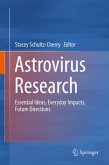Jeffrey E. Green / Thomas Ried (Hrsg.)design, analysis, pathways, validation and pre-clinical testing
Genetically Engineered Mice for Cancer Research
design, analysis, pathways, validation and pre-clinical testing
Herausgegeben:Green, Jeffrey E.; Ried, Thomas
Jeffrey E. Green / Thomas Ried (Hrsg.)design, analysis, pathways, validation and pre-clinical testing
Genetically Engineered Mice for Cancer Research
design, analysis, pathways, validation and pre-clinical testing
Herausgegeben:Green, Jeffrey E.; Ried, Thomas
- Gebundenes Buch
- Merkliste
- Auf die Merkliste
- Bewerten Bewerten
- Teilen
- Produkt teilen
- Produkterinnerung
- Produkterinnerung
Genetically-engineered mouse models for cancer research have become invaluable tools for studying cancer biology and evaluating novel therapeutic approaches. This volume focuses on state-of-the-art methods for generating, analyzing and validating such models for studying aspects of human cancer biology. Additionally, these models are emerging as important pre-clinical systems in which to test cancer prevention and therapeutic strategies in order to select compounds for testing in clinical trials.
Andere Kunden interessierten sich auch für
![Epigenetics of Infectious Diseases Epigenetics of Infectious Diseases]() Epigenetics of Infectious Diseases113,99 €
Epigenetics of Infectious Diseases113,99 €![Kala Azar in South Asia Kala Azar in South Asia]() Kala Azar in South Asia113,99 €
Kala Azar in South Asia113,99 €![Complement Activation in Malaria Immunity and Pathogenesis Complement Activation in Malaria Immunity and Pathogenesis]() Complement Activation in Malaria Immunity and Pathogenesis76,99 €
Complement Activation in Malaria Immunity and Pathogenesis76,99 €![High-Dimensional Data Analysis in Cancer Research High-Dimensional Data Analysis in Cancer Research]() Xiaochun Li / Ronghui Xu (eds.)High-Dimensional Data Analysis in Cancer Research76,99 €
Xiaochun Li / Ronghui Xu (eds.)High-Dimensional Data Analysis in Cancer Research76,99 €![Astrovirus Research Astrovirus Research]() Astrovirus Research113,99 €
Astrovirus Research113,99 €![Implication of Quorum Sensing System in Biofilm Formation and Virulence Implication of Quorum Sensing System in Biofilm Formation and Virulence]() Implication of Quorum Sensing System in Biofilm Formation and Virulence113,99 €
Implication of Quorum Sensing System in Biofilm Formation and Virulence113,99 €![Cardiovascular Physiology in the Genetically Engineered Mouse Cardiovascular Physiology in the Genetically Engineered Mouse]() Brian D. Hoit / Richard A. Walsh (Hgg.)Cardiovascular Physiology in the Genetically Engineered Mouse115,99 €
Brian D. Hoit / Richard A. Walsh (Hgg.)Cardiovascular Physiology in the Genetically Engineered Mouse115,99 €-
-
-
Genetically-engineered mouse models for cancer research have become invaluable tools for studying cancer biology and evaluating novel therapeutic approaches. This volume focuses on state-of-the-art methods for generating, analyzing and validating such models for studying aspects of human cancer biology. Additionally, these models are emerging as important pre-clinical systems in which to test cancer prevention and therapeutic strategies in order to select compounds for testing in clinical trials.
Produktdetails
- Produktdetails
- Verlag: Springer / Springer New York / Springer, Berlin
- Artikelnr. des Verlages: 11970514, 978-0-387-69803-8
- 2012
- Seitenzahl: 652
- Erscheinungstermin: 8. Dezember 2011
- Englisch
- Abmessung: 241mm x 160mm x 40mm
- Gewicht: 1194g
- ISBN-13: 9780387698038
- ISBN-10: 0387698035
- Artikelnr.: 22505560
- Herstellerkennzeichnung
- Springer-Verlag GmbH
- Tiergartenstr. 17
- 69121 Heidelberg
- ProductSafety@springernature.com
- Verlag: Springer / Springer New York / Springer, Berlin
- Artikelnr. des Verlages: 11970514, 978-0-387-69803-8
- 2012
- Seitenzahl: 652
- Erscheinungstermin: 8. Dezember 2011
- Englisch
- Abmessung: 241mm x 160mm x 40mm
- Gewicht: 1194g
- ISBN-13: 9780387698038
- ISBN-10: 0387698035
- Artikelnr.: 22505560
- Herstellerkennzeichnung
- Springer-Verlag GmbH
- Tiergartenstr. 17
- 69121 Heidelberg
- ProductSafety@springernature.com
Foreword.- Preface.- Overview of Designing Genetically-Engineered Mouse Models.- The Use of Cre-loxP Technology and Inducible Systems to Generate Mouse Models of Cancer.- Using Recombineering Technology To Create Genetically Engineered Mouse Models.- Insertional Mutagenesis for Generating Mouse Models of Cancer.- The RCAS/TVA Somatic Gene Transfer Method In Modeling Human Cancer.- Target-selected ENU Mutagenesis to Develop Cancer Models in the Rat.- The Tumor Pathology of Genetically Engineered Mice: Genomic Pathology.- Genomic DNA Copy Number Alterations in Mouse Cancer Models and Human Cancer.- Characterization of chromosomal translocations in mouse models of hematological malignancies using spectral karyotyping (SKY), FISH, and immunocytochemistry.- Expression Profiling of Mouse Models of Human Cancer: model categorization and guidance for preclinical testing.- Imaging mouse models of human cancer.- Identifying Mammary Epithelial Stem and Progenitor Cells.- Differentiation Programs in Development and Cancer.- Roles of p53 and PRB Tumor Suppressor Networks in Human Cancer: Insight from Studies in the Engineered Mouse.- Mouse Models for Colorectal Cancer.- Src family tyrosine kinases: Implications for mammary tumor progression.- Maspin and Suppression of Tumor Metastasis.- Epigenetic Mouse Models.- Modeling Transforming Growth Factor-ß Signaling in Cancer.- Modeling Stromal-Epithelial Interactions.- Utilizing Mouse Models of Human Cancer for Assessing Immune-Modulation of Cancer Development.- Transplanted Tumor Models For Preclinical Drug Testing And The Potential Benefit Of Genetically Engineered Mouse Models.- The Development and Use of Genetically Tractable Pre-Clinical Mouse Models.- Animal Models for Breast Cancer Prevention Resarch.- Oncogene Addiction: Mouse Models and Clinical Relevance for Molecularly Targeted Therapies.- Mouse Models in Preclinical Drug Development- Applications to CNS Models.- Mouse Models of Human Cancer: Role inPre-clinical Testing and Personalized Medicine.- Mighty, But How Useful? The Emerging Role of Genetically Engineered Mice in Cancer Drug Discovery and Development.- Index.
Foreword.- Preface.- Overview of Designing Genetically-Engineered Mouse Models.- The Use of Cre-loxP Technology and Inducible Systems to Generate Mouse Models of Cancer.- Using Recombineering Technology To Create Genetically Engineered Mouse Models.- Insertional Mutagenesis for Generating Mouse Models of Cancer.- The RCAS/TVA Somatic Gene Transfer Method In Modeling Human Cancer.- Target-selected ENU Mutagenesis to Develop Cancer Models in the Rat.- The Tumor Pathology of Genetically Engineered Mice: Genomic Pathology.- Genomic DNA Copy Number Alterations in Mouse Cancer Models and Human Cancer.- Characterization of chromosomal translocations in mouse models of hematological malignancies using spectral karyotyping (SKY), FISH, and immunocytochemistry.- Expression Profiling of Mouse Models of Human Cancer: model categorization and guidance for preclinical testing.- Imaging mouse models of human cancer.- Identifying Mammary Epithelial Stem and Progenitor Cells.- Differentiation Programs in Development and Cancer.- Roles of p53 and PRB Tumor Suppressor Networks in Human Cancer: Insight from Studies in the Engineered Mouse.- Mouse Models for Colorectal Cancer.- Src family tyrosine kinases: Implications for mammary tumor progression.- Maspin and Suppression of Tumor Metastasis.- Epigenetic Mouse Models.- Modeling Transforming Growth Factor-ß Signaling in Cancer.- Modeling Stromal-Epithelial Interactions.- Utilizing Mouse Models of Human Cancer for Assessing Immune-Modulation of Cancer Development.- Transplanted Tumor Models For Preclinical Drug Testing And The Potential Benefit Of Genetically Engineered Mouse Models.- The Development and Use of Genetically Tractable Pre-Clinical Mouse Models.- Animal Models for Breast Cancer Prevention Resarch.- Oncogene Addiction: Mouse Models and Clinical Relevance for Molecularly Targeted Therapies.- Mouse Models in Preclinical Drug Development- Applications to CNS Models.- Mouse Models of Human Cancer: Role inPre-clinical Testing and Personalized Medicine.- Mighty, But How Useful? The Emerging Role of Genetically Engineered Mice in Cancer Drug Discovery and Development.- Index.









